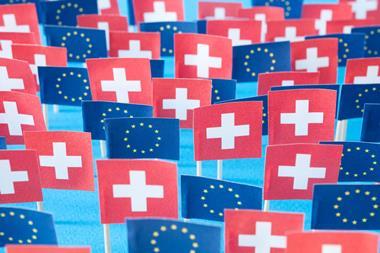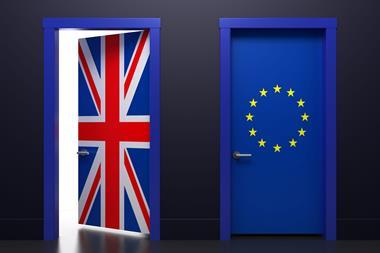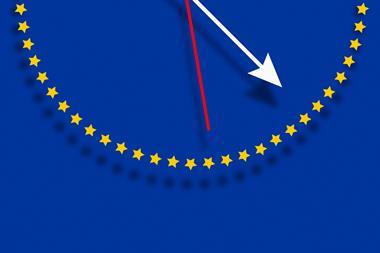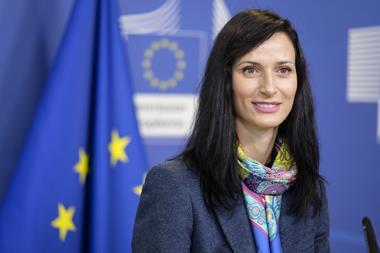The government has extended the financial guarantee to researchers applying for funding from Horizon Europe once more, even as it calls for ideas for the next research and innovation ‘moonshots’ that could be delivered via the UK’s proposed Horizon alternative.
It’s the fifth time the safety net has been extended since it was set up in late 2021, enabling successful applicants to the EU’s framework programme to receive their grant from funder UKRI while the government negotiates association. In a call with EU president Ursula von der Leyen earlier this week, the prime minister Rishi Sunak said he hoped to see progress soon.
Swift association had been expected after the post-Brexit trade dispute over Northern Ireland was resolved in February, especially as technical details had already been agreed as part of the UK’s withdrawal. Since then, however, there has been a changing cast of negotiators: the EU’s research commissioner resigned last month to become Bulgaria’s prime minister, while cover has been arranged for science secretary Michelle Donelan while she is on maternity leave. The government won’t disclose whether the new science secretary, Chloe Smith, has met her EU counterparts since, but said discussions are live.
Pay to play
As in 2020, the price tag for association is a major issue. A government spokesperson said ‘our participation must be fair for UK researchers, businesses and taxpayers and reflect the lasting impact of two years of EU delays to the UK’s association’.
The EU has agreed that the UK should not pay for the years of Horizon that it has missed, but the government ‘has been arguing that the value to the UK of participating in Horizon is lower than it would have been if we’d had full participation right from the start’, says Kieron Flanagan, professor of science and technology policy at the University of Manchester. ‘It seems to be that they want a complete reset – a new set of terms.’
‘They don’t get why the UK can’t spend the money directly and have equal or better impact,’ he adds. ‘They just can’t conceive of the value in projects themselves. The value comes from the activity – the scientists that are funded, the networks that are built.’
The payment mechanism for the UK is based on its GDP as a share of EU GDP, with a top up if researchers are more successful than anticipated. But there’s no mechanism to reduce the UK’s contribution if researchers win a lower share of funding. Other newly associated countries such as Israel, and Bosnia and Herzegovina do have an annual corrective mechanism that works both ways.
’We will have to pay in more than we get out in all likelihood. But it’s a question of trying to ensure that there’s some protection against that being enormous,’ suggests Peter Mason, who leads on European engagement at Universities UK. However, ‘we can’t look at the current level of participation and assume that’s the baseline – that’s where we are after all these years of uncertainty. So that’s an argument that we’re making to government as well.’
David Eggleton, a lecturer in project management at the Science Policy Research Unit at Sussex University, adds that ‘there are concerns from the [European] Commission, that the UK may just cherry pick the bits of Horizon Europe it wants to be associated with, that it does really well in and then not be associated with those it does not do so well in, so the UK gets the maximum proverbial bang for its buck.’
Aside from money, it’s a ‘power issue’ suggests Kurt Deketelaere, secretary-general of the League of European Research Universities. ‘The UK government wants to show, for its universities and citizens, that they have made the best deal and forced the [commission] to make some concessions,’ he says, calling for pragmatism from both sides.
‘Chilling effect’
Since the safety net for researchers was put in place, the government has committed over £1.1 billion to cover almost 1600 collaborations, alongside more than 700 grants to researchers who successfully applied for awards from the European Research Council or Marie Skłodowska-Curie Actions. However, the Treasury has also clawed back £1.6 billion of the almost £7 billion set aside for the first four years of Horizon Europe at the autumn spending review in 2021.
While the UK is still winning projects, there’s no doubt continuing uncertainty has led to a drop-off in participation with leading universities so far securing just a fraction of the funding they were awarded under Horizon 2020. Applications for European Research Council grants have also fallen, from 1314 in 2018 to 918 in 2022. Researchers say there’s anecdotal evidence that EU institutions are being advised not to include British partners. That’s already ‘having a chilling effect’, says Eggleton. For early career researchers ‘it all feels deeply, deeply uncertain’.
He speculates that – just as in the case of Switzerland, which is not yet associated – UK participation is being tied to wider relationship issues. ‘Perhaps the commission and council would like to see that improved working relationships start to bear fruit before they start giving the UK some of these benefits of association.’
However, does a crunch point come for association, with Horizon now in its third year? Deketelaere believes the UK ‘must certainly be on board for the second half of the programme’. ‘It’s tricky,’ says Mason. ‘The question is, how do we give scientists certainty? We want the association, but we also want certainty. Ideally, we [will] find a compromise with the EU which works for both sides, and that’s through association. But I don’t think anyone wants to be in this position in six months’ time, where we’re still going through this [seemingly] interminable negotiation process.’

















No comments yet